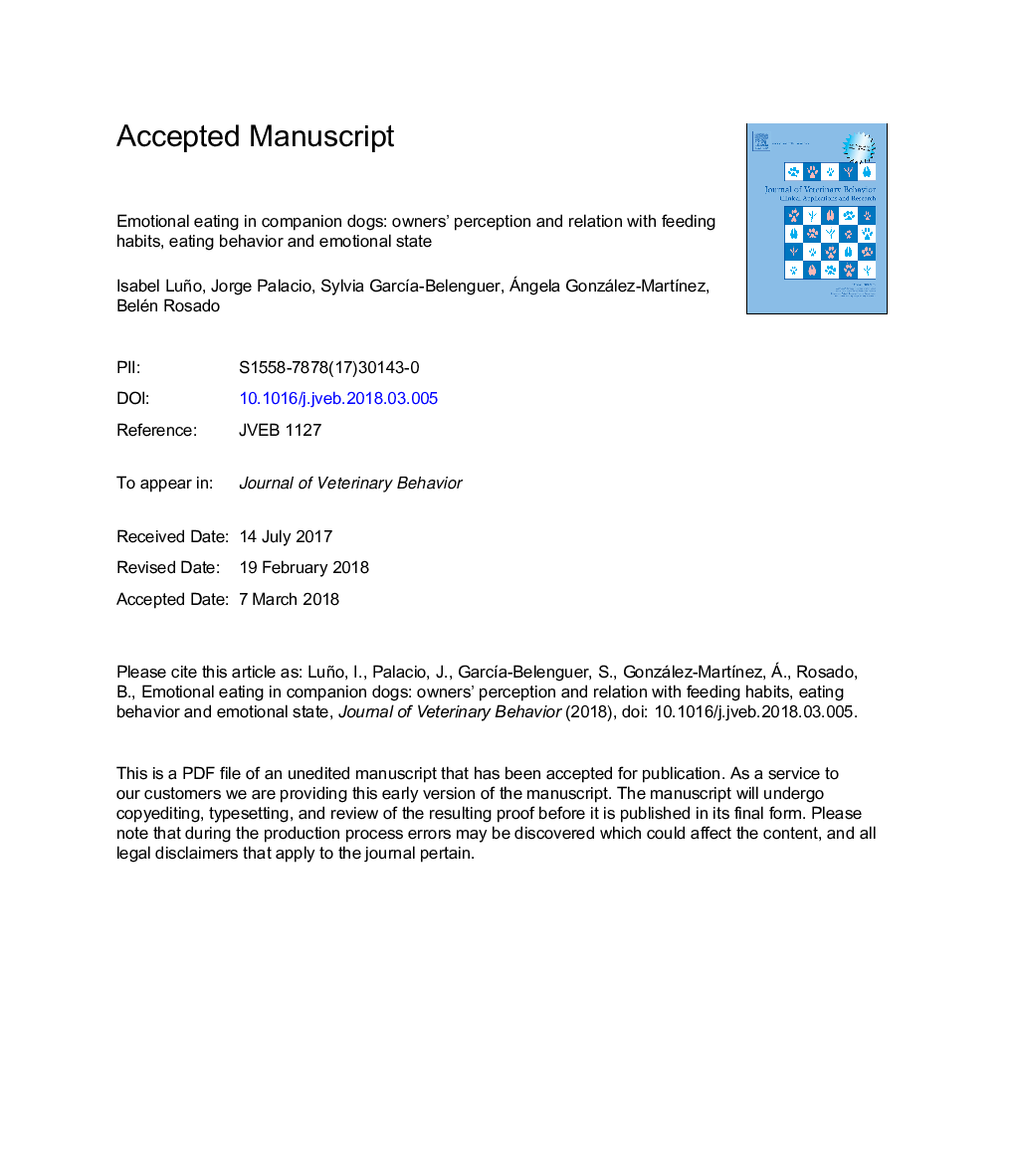| کد مقاله | کد نشریه | سال انتشار | مقاله انگلیسی | نسخه تمام متن |
|---|---|---|---|---|
| 8484062 | 1551591 | 2018 | 33 صفحه PDF | دانلود رایگان |
عنوان انگلیسی مقاله ISI
Emotional eating in companion dogs: Owners' perception and relation with feeding habits, eating behavior, and emotional state
ترجمه فارسی عنوان
خوردن عاطفی در سگهای همراه: درک صاحبان و ارتباط آن با عادات تغذیه، رفتار خوردن و حالت احساسی
دانلود مقاله + سفارش ترجمه
دانلود مقاله ISI انگلیسی
رایگان برای ایرانیان
کلمات کلیدی
سگ، رفتار - اخلاق، خوردن عاطفی، احساسات، عادات تغذیه، صاحبان،
موضوعات مرتبط
علوم زیستی و بیوفناوری
علوم کشاورزی و بیولوژیک
علوم دامی و جانورشناسی
چکیده انگلیسی
Emotional eating, or changes in eating behavior due to negative emotions, has been demonstrated in humans and rodents, but not in dogs. The aim of the present study was to survey owners' perceptions of the presence of emotional eating in their dogs, as a first approach to investigate this phenomenon in companion dogs. A questionnaire was administered via social media, including questions about general information, feeding habits, eating behavior and related problems, temperament, and emotional state. A specific question for assessing the perceptions of owners on emotional eating in their dogs (on a 0-4 scale) was included. The vast majority of the 1099 respondents (n = 898, 81.7%) perceived that their dog showed emotional eating at some level of intensity, with more than 40% of the surveyed owners giving a 3 or 4 score. A chi-square test showed significant associations (P < 0.05) between the intensity of emotional eating and several variables. Thus, achieving the maximum score for owner-perceived emotional eating (4/4) was associated with the dog being diagnosed with a medical condition, with the owners' awareness of the ideal weight of his/her dog, and with particular feeding habits, including feeding the dog exclusively with home-made food, once a day, and giving extras as a reward for obedience. Furthermore, high owner-perceived emotional eating was related with being a dependent and unhappy dog, as well as with not eating during the absence of the owner. On the other hand, being a calm dog, both in general as well as specifically during greetings or walk, and not being fearful of other dogs, and not showing any aggression were associated with the absence of owner-perceived emotional eating in the studied dogs (0/4). These results open a new research field on emotional eating in dogs to be further explored in relation to its implication in obesity treatment and behavioral problem management.
ناشر
Database: Elsevier - ScienceDirect (ساینس دایرکت)
Journal: Journal of Veterinary Behavior - Volume 25, MayâJune 2018, Pages 17-23
Journal: Journal of Veterinary Behavior - Volume 25, MayâJune 2018, Pages 17-23
نویسندگان
Isabel Luño, Jorge Palacio, Sylvia GarcÃa-Belenguer, Ángela González-MartÃnez, Belén Rosado,
